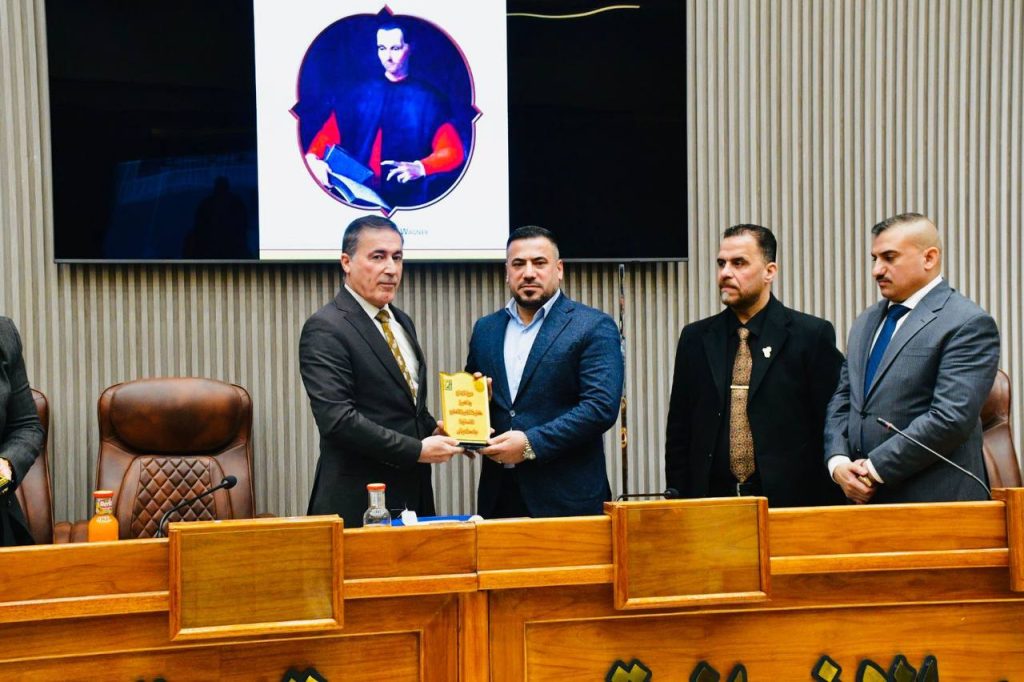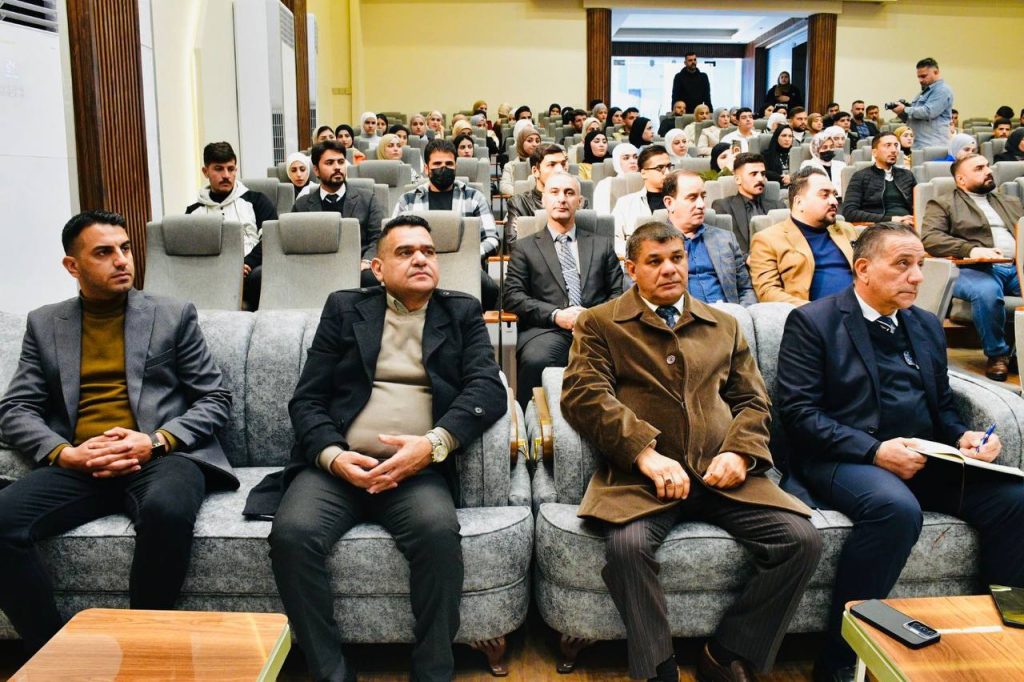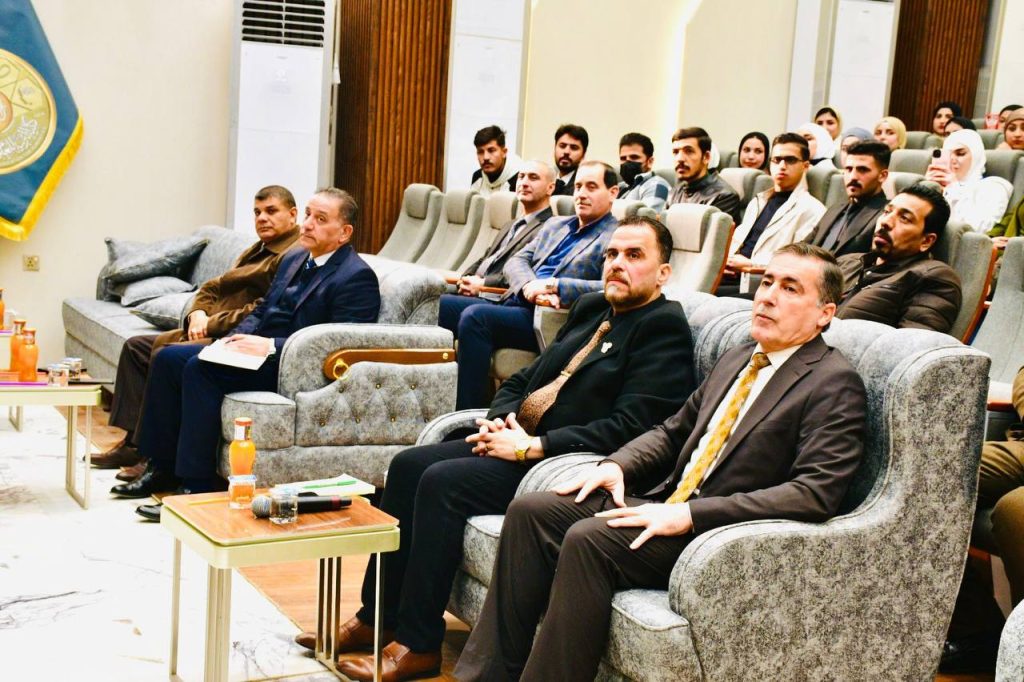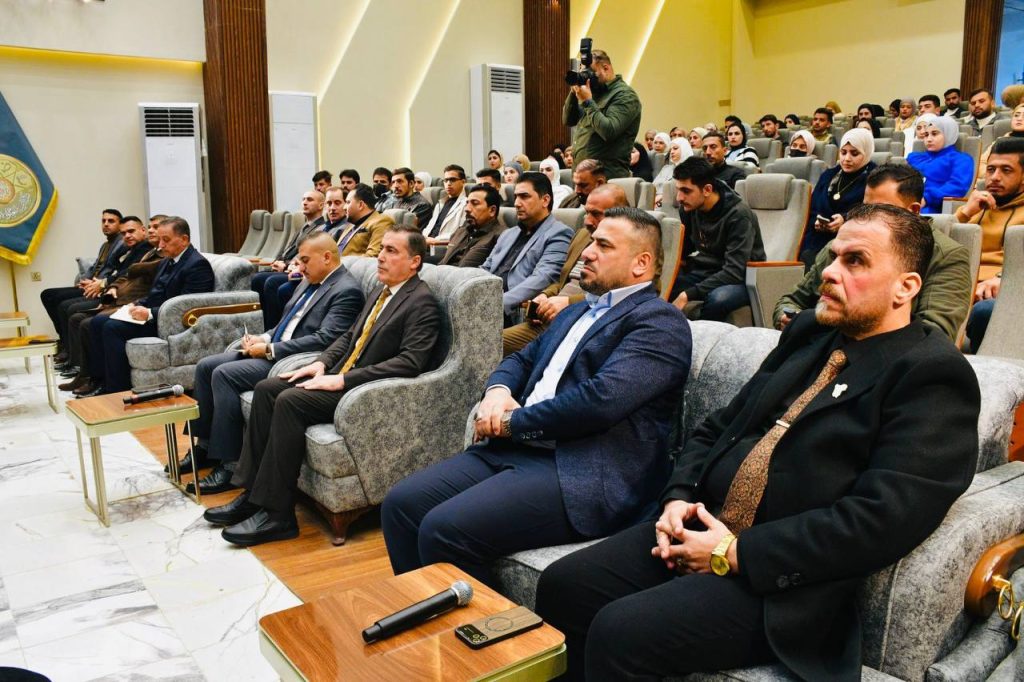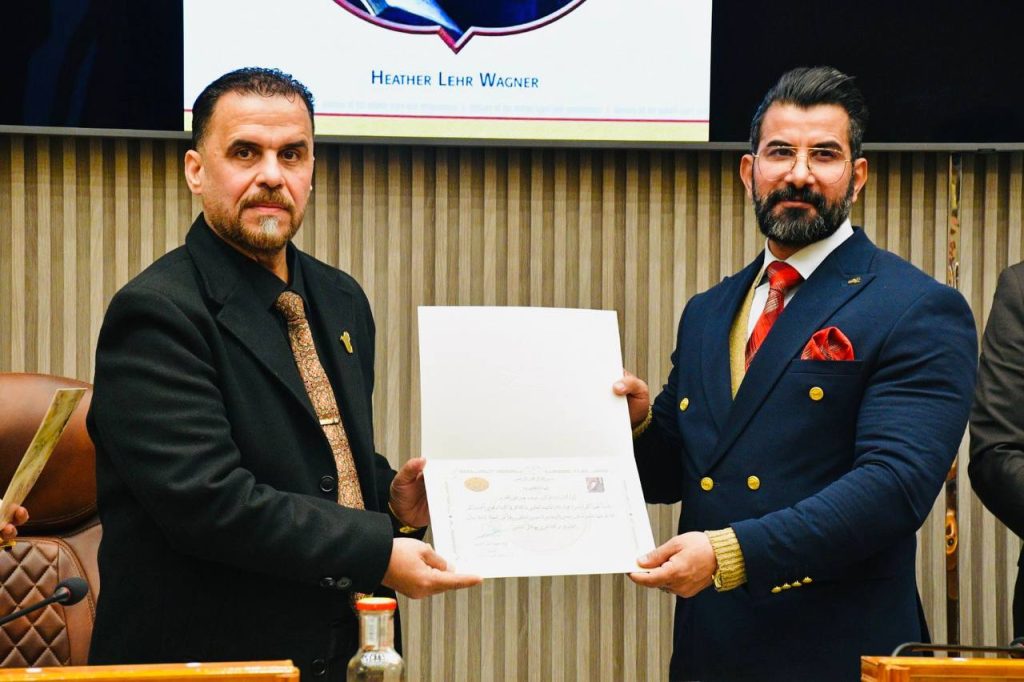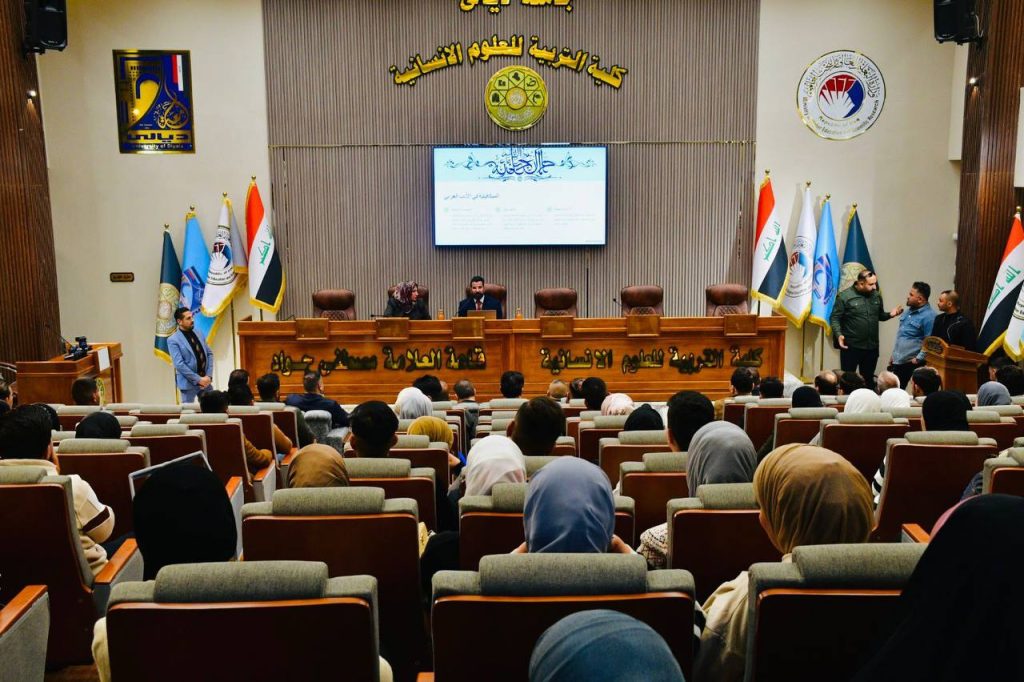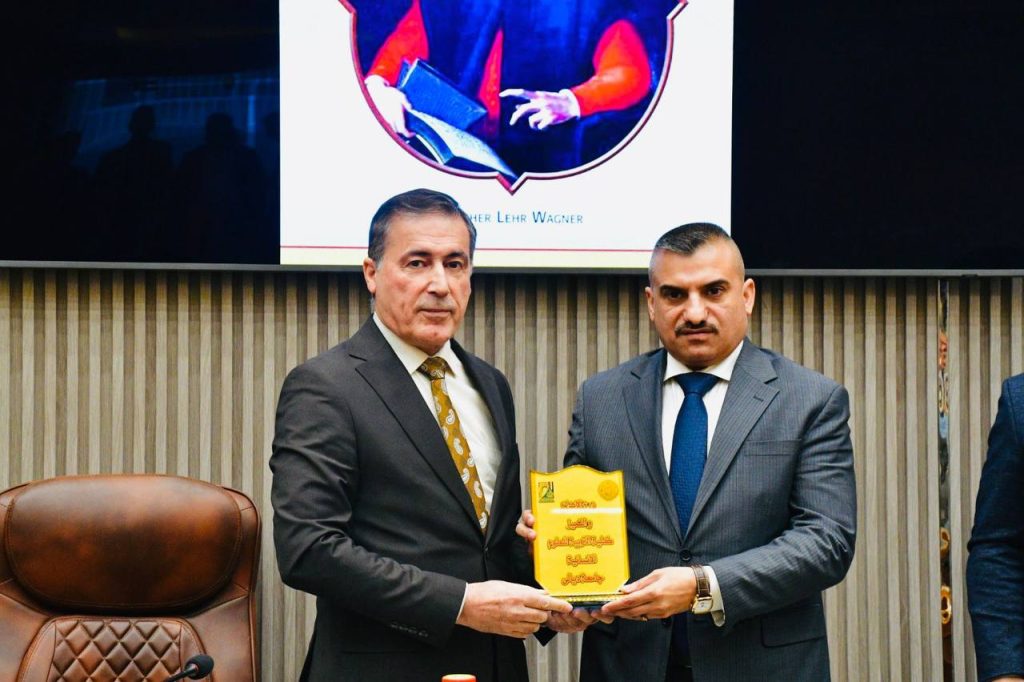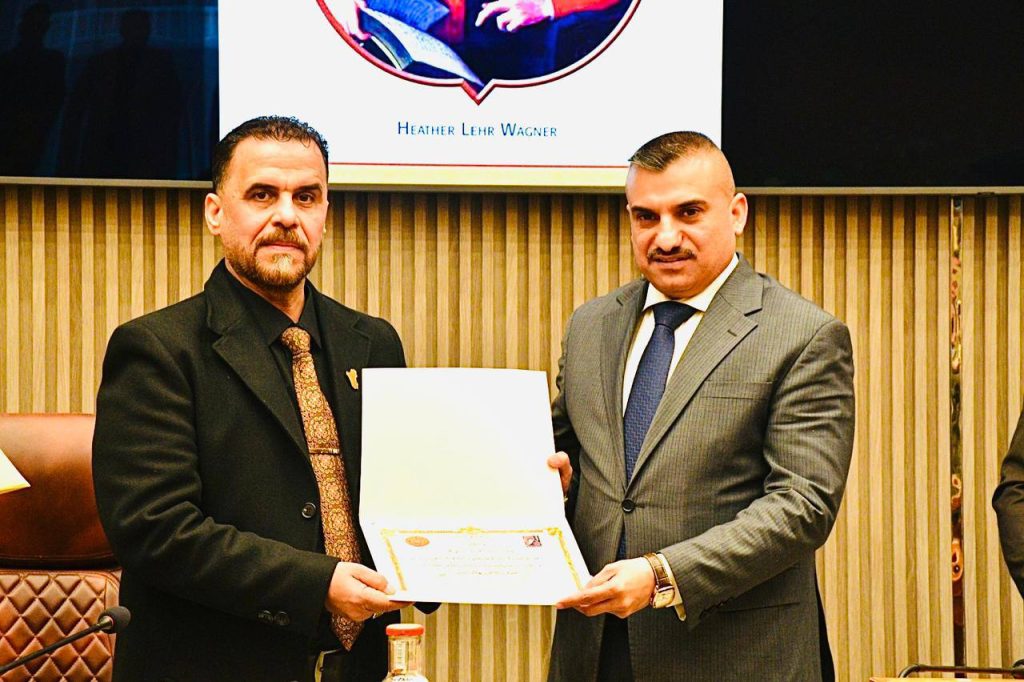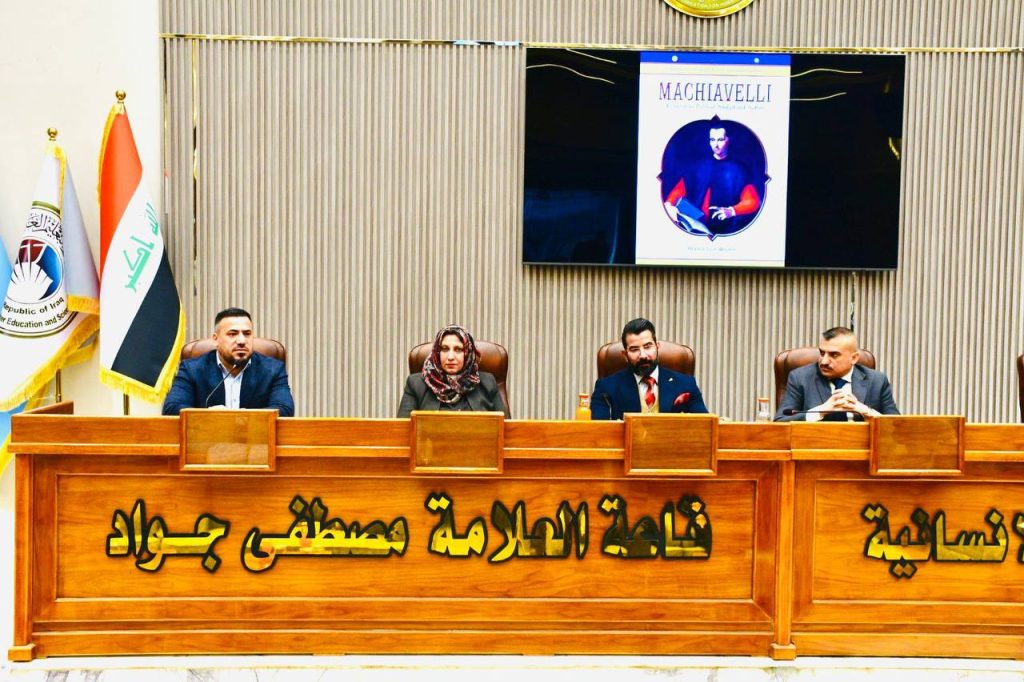
Under the patronage of the President of Diyala University, Professor Dr. Tahseen Hussein Mubarak, and under the supervision of the Dean of the College of Education for Humanities, Professor Dr. Luay Saihoud Al-Tamimi, and chaired by Professor Dr. Lama Ibrahim Shakir, the college organized a dialogue symposium titled “Machiavellianism: The Philosophical Thought of Political Cunning and Administrative Wisdom.”
Under the patronage of the President of Diyala University, Professor Dr. Tahseen Hussein Mubarak, and under the supervision of the Dean of the College of Education for Humanities, Professor Dr. Luay Saihoud Al-Tamimi, and chaired by Professor Dr. Lama Ibrahim Shakir, the college organized a dialogue symposium titled “Machiavellianism: The Philosophical Thought of Political Cunning and Administrative Wisdom.”
The symposium hosted Members of Parliament Mr. Ahmed Al-Mousawi and Mr. Mohammed Qutaiba Al-Bayati, along with the Dean of the College of Education at Al-Bayan University, Professor Dr. Haidar Jabir Ghabban.
Symposium Themes:
- Political Affairs
The symposium highlighted the influence of Niccolò Machiavelli, particularly his book “The Prince,” which has significantly contributed to the establishment of global political philosophy. The discussion emphasized its foundational role in shaping the strategies of many world leaders and political systems to this day, despite criticism of its principles, such as:- The end justifies the means.
- Politicians must balance public approval and dissatisfaction.
- Leaders should abandon emotional warmth in governance.
- Rulers need the cunning of a fox and the courage of a lion.
- A leader should not only be a politician but also an artist.
- Literary Affairs
The symposium examined Machiavellian philosophy’s impact on global literature, noting its adoption in many world-renowned novels from English to Arabic and Russian literature. It explored the extent of this political philosophy’s influence on storytelling and literary works, highlighting the moral conflict often present in narratives addressing political cunning while critiquing tyranny. - Psychological Affairs
The discussion delved into the psychological dimensions of Machiavellian thought, particularly its effects on the mindset of political leaders and their methods of governance.
Guest Contributions:
- MP Ahmed Al-Mousawi
He expressed his delight in attending such distinguished symposiums, emphasizing their importance in applying successful political practices to state governance. He highlighted Islam’s unique political philosophy, rooted in Sharia principles, rejecting any justification of ends through unlawful means. He noted that any regime relying on the principle of “the end justifies the means” to sustain its rule or oppress its people is destined to fall. - MP Mohammed Qutaiba Al-Bayati
He pointed out that many political systems in Islamic countries still operate based on Machiavellian principles, far removed from Islamic teachings. He stressed that the lack of ethical integrity among many politicians is a major factor in political instability and crises.
Closing and Honors:
At the conclusion of the symposium, the President of Diyala University, Professor Dr. Tahseen Hussein Mubarak, presented university shields for creativity and excellence to MPs Ahmed Al-Mousawi and Mohammed Qutaiba Al-Bayati. The Dean of the College, Professor Dr. Luay Saihoud Al-Tamimi, also awarded certificates of appreciation and letters of thanks to the guests and speakers, recognizing their scientific and cultural contributions and wishing them continued success.

